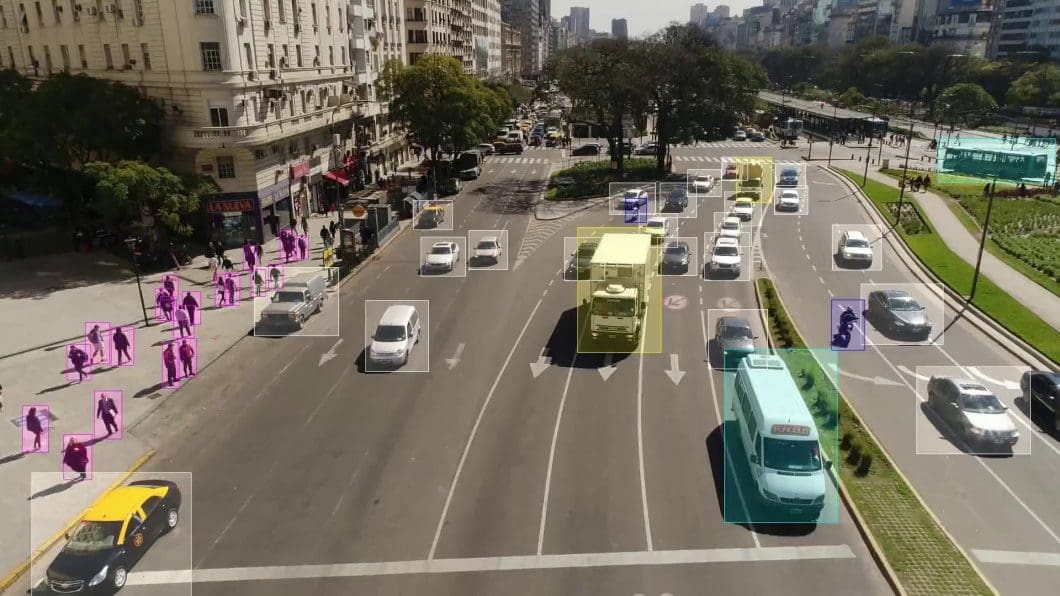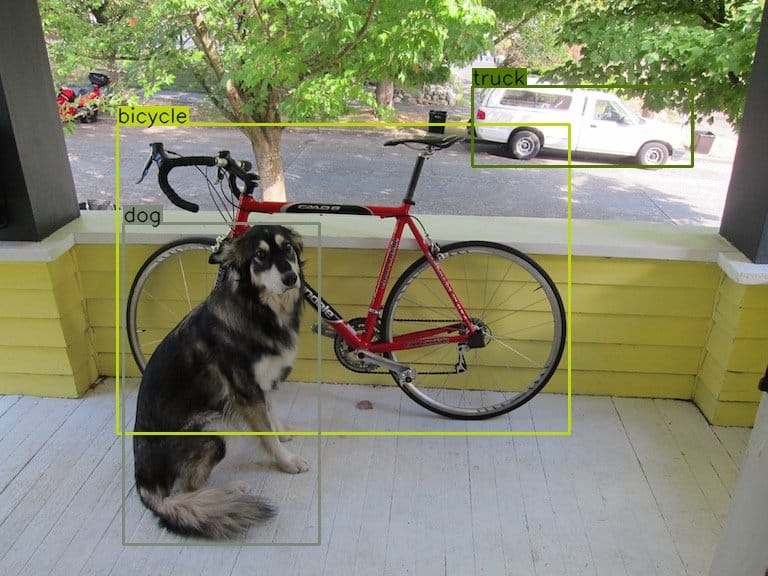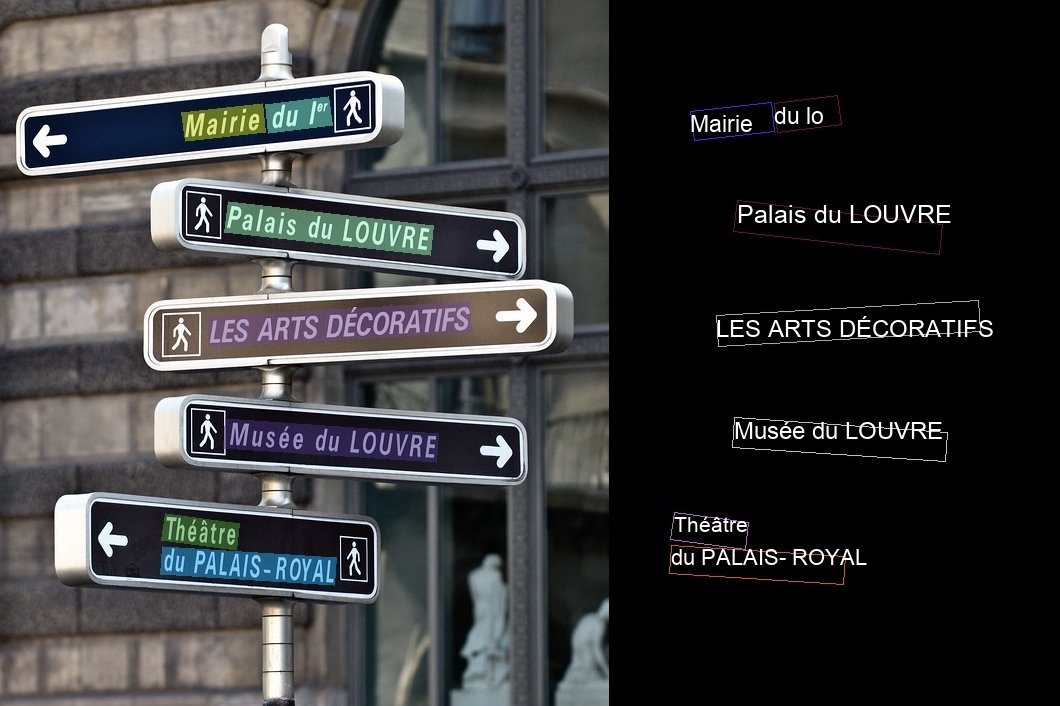This article will cover the best free and paid online computer vision courses for beginners and those experienced in coding but new to Computer Vision.
Computer vision technology is highly popular, and becoming a Computer Vision Engineer is a promising career option for beginners as well as for experienced developers.
We have put together resources to learn about Computer Vision in well-structured online courses. Therefore, to help you evaluate which course to attend, we evaluated the most popular courses and created a list.
1. Introduction to Computer Vision and Image Processing
An online course offered by IBM on Coursera
Description
This beginner-friendly course will give you an understanding of Computer Vision and its various applications across many industries, such as autonomous cars, robotics, and face recognition. The free lessons include hands-on exercises to upload, train, and test your own custom image classification and detection models. You will create a simple computer vision web app and deploy it to the Cloud. The course does not require prior knowledge of Machine Learning or Computer Vision. Nevertheless, some prior knowledge of the Python programming language is required.
Our Review
The course is a perfect starter guide for those interested in Computer Vision; it is clear, well-made, and interesting. There are plenty of examples and a variety of applications. Because the course includes IBM Cloud and 90% of the course is lab assignments, while this is very engaging, it can lead to difficulties if the labs are unstable or non-responsive. While the course title is about OpenCV, it is very specific to using the IBM product, the Watson Visual Recogniser, and explains it well. However, the math behind Computer Vision and using OpenCV is not covered in-depth, but it still is a great course for beginners.
- Type: Free
- Level: Beginner
- Duration: 21 hours
- Find it here

2. Python for Computer Vision with OpenCV and Deep Learning
An online course is offered on Udemy
Description
This online course consists of 10 sections and focuses on learning how to use the Python programming language for Computer Vision. Therefore, it includes an introduction to Python and the OpenCV library to perform Computer Vision tasks on images and videos. Furthermore, the course covers numerical processing and image manipulation using the NumPy library before moving to image processing with OpenCV. Next, you will learn about performing face detection and object tracking on video streams from a webcam. Finally, the course covers the latest Deep Learning Networks such as YOLO (You Only Look Once, see an example below). The course requires you to have a clear understanding of Python and Ubuntu.
Our Review
The course is very well structured and easy to follow. The subject is explained very well and practically, and one of the best courses on Computer Vision we found will help to give starters a good understanding of OpenCV. However, as the course advances and gets more in-depth, we wish there were more explanations regarding the coding. The assignments are not much of a challenge, as everything except for the syntax is provided to solve the problem, even the algorithm, and the parameters to use. This makes the examples too simple compared to real image processing issues that Machine Learning and Deep Learning try to solve.
- Type: Paid (13 USD)
- Level: Intermediate
- Duration: 14 hours
- Find it here

3. Python Project: Pillow, Tesseract, and OpenCV
An online course offered by the University of Michigan on Coursera
Description
This online course by the University of Michigan is an introduction to three different libraries available for Python 3 to create a real-world computer vision project. Therefore, the course includes free lessons about using third-party APIs for face recognition with the help of the popular OpenCV library, performing optical character recognition (OCR, see an example below), and image manipulation through Python.
Our Review
The course gives great insights into how to approach a new library, which is an essential skill every Computer Vision Engineer must have. We liked that the course is close to a real-world-type programming project that offers a serious challenge instead of a theoretical assignment. However, this makes the course significantly more difficult than others, and having some programming experience is highly recommended. Sometimes, the course felt a bit rushed, and because of the limited time, the lectures only gave a high-level overview of PIL, Tesseract, and OpenCV.
- Type: Free
- Level: Intermediate
- Duration: 20 hours
- Find it here

4. Introduction to Computer Vision
An online course offered by Georgia Tech on Udacity
Description
Georgia Tech has also put together an effective program for beginners to learn about Computer Vision. The course covers fundamental CV theories such as image formation, feature detection, motion estimation, and camera imaging geometry. Also, it covers the essentials of using low to mid-level algorithms to analyze images and extract structural information.
Our Review
For this course, a good working knowledge of MATLAB and Python with NumPy is helpful. As the course is more “math-heavy” than other courses, we recommend a good understanding of linear algebra and vector calculus. The course helps to get a solid understanding of Computer Vision without prior knowledge or experience in vision or signal processing. If you want to learn the basics about the math behind Machine Learning (ML) technology, check out our article Machine Learning Algorithms: Mathematical Deep Dive.
- Type: Free
- Level: Intermediate
- Duration: 4 months
- Find it here
5. Computer Vision Basics
An online course by the University at Buffalo and the State University of New York on Coursera
Description
This computer vision course helps beginners understand what Computer Vision is and how it is used to make computers see. The course covers digital signage processing, neuroscience, and artificial intelligence (AI). This course is designed for beginners and those looking for a refresher course in mathematical Computer Vision concepts and MATLAB.
Our Review
The course is a good introduction to getting started with Computer Vision. However, we wished the course was a bit more in-depth and with more practical exercises as well as detailed coding assignments. Overall, it’s suitable for absolute beginners to develop fundamental knowledge in image processing.
- Type: Free
- Level: Intermediate
- Duration: 4 blocks, 13 hours
- Find it here
6. Become a Computer Vision Expert
A nanodegree Program by Nvidia on Udacity.
Description
This online course is offered by Nvidia, an industry leader in Computer Vision. Compared to the other courses, this one requires experience with Python, statistics, machine learning, and deep learning. The course starts with the bare essentials of Computer Vision and covers neural network architectures, image transformation, feature extraction, and object recognition.
Our Review
This course is aimed at beginners in Computer Vision with prior programming experience. Therefore, the course offers real-world projects as part of the curriculum and expert mentorship through the course. The program is optimal for attendees who are considering becoming a Computer Vision engineer.
- Type: Paid (837 USD)
- Level: Advanced
- Duration: 3 months (at 10-15 hours/week)
- Find it here
What’s Next
These six courses for Computer Vision are great for anyone who wants to learn about Computer Vision and develop an understanding of the fundamentals. The courses offer hands-on assignments to develop some basic practical experience.
The online courses are built for different audiences, and we recommend you make sure you won’t be disappointed with either too little information or too difficult assignments and examples.
If you want to read more about related topics, we recommend you check out those articles:
